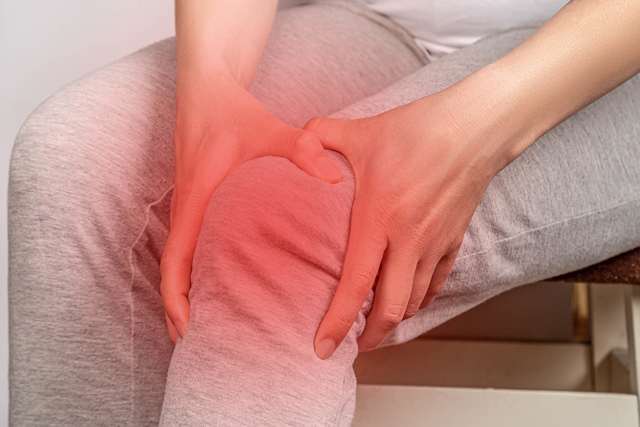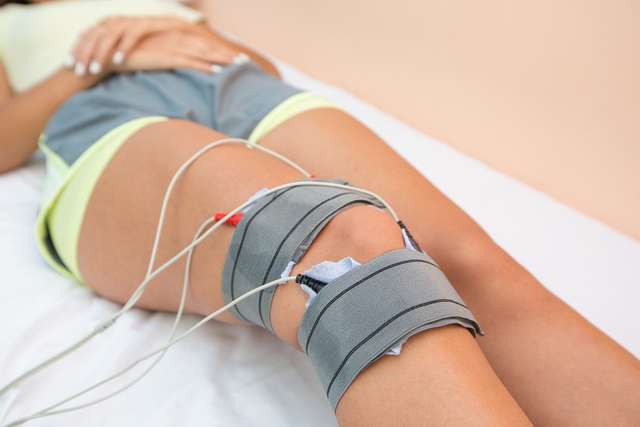Let read some of the common diseases related to nerve damage in the knee having similar symptoms. When surrounding tissues impinge on a nerve, it is known as a pinched nerve. It creates symptoms in the area of the body served by that nerve. When the bone, tissue, or other organs around a nerve put too much pressure on it, it becomes pinched. They injure the nerve, causing it to malfunction. Although it is most often linked with the nerves in your back, it may happen to any nerve in your body. Doctors refer to this as nerve compression or entrapment. What are the symptoms of nerve damage in the knee? Numbness is a symptom that can cause tingling and lack of sensation in the knee joint.
This numbness and tingling can sometimes spread down or up the leg. Numbness in the knee can be caused by various factors, ranging from an acute injury to chronic disease. Continue reading to discover more about the causes, remedies, and symptoms of nerve damage in the knee.
Symptoms of Nerve Damage:

There is just one nerve that runs through your knee that might be affected. The peroneal nerve is a branch of your sciatic nerve. This nerve travels around the outside of your knee and down the outside of your lower leg. It is located at the bottom of your knee, between the bone and the skin, making it prone to compression by anything that exerts pressure on the outside of your knee.
There are the following symptoms of nerve damage in the knee:
- Numbness
- Tingling
- Pins and needles sensation
- Searing pain
- Lack of sensation
Moreover, the peroneal nerve provides feeling and movement to the outside of your lower thigh and the top of your foot. When a nerve is squeezed, it gets irritated, resulting in the symptoms of a pinched nerve. Typically, just the lining of the nerve, known as myelin, is damaged. When the nerve is injured, the symptoms are similar but more acute. Dorsiflexion, or the inability to elevate your foot toward your leg, is sometimes regarded as the most painful symptom. When you walk, your foot will drag as a result of this.
Causes of Nerve Damage:
Several nerves in your body are involved in starting movements and feeling touch, temperature, and other factors. Nerve damage in the knee can be caused by nerve damage or compression.

There are the following factors that cause nerve damage.
Nerve Compression from Outside:
Outside forces pushing on the leg and knee might cause numbness. Numbness can occur if a person’s excessively tight clothing cuts off circulation or moves on a cutaneous nerve. Temporary knee numbness can also occur due to a person’s leg posture. Even crossing your legs for an extended period might induce knee numbness.
Squatting:
This position put a strain on the side of your knee. In squatting position for extended periods causes knee problems.
Fracture in Bone:
Breakage of the more significant lower leg bone (fibula) or, less frequently, the smaller bone (tibia) at the knee might entrap the nerve.
Knee Ligament Damage:
When your ligament is damaged, the nerve might be compressed owing to bleeding or inflammation.
Gynecologic:
For most gynecologic and certain abdominal operations, the apparatus used to keep your legs turned outward and knees flexed might compress the nerve.
Long-Term Bed Rest:
When you lie down, your legs tend to rotate outward, and your knees bend, and the bed might put pressure on the nerve.
Humans are social animals. How is the Impact of Social Health on Daily Life?
Cysts or Tumors:
When they find in or near the nerve, they might create pressure.
Knee Surgery Complication:
The nerve is pinche accidentally, during knee replacement surgery or an arthroscopic treatment.
Diagnoses of Nerve Damage:

To diagnose and determine the explanation, your doctor will examine you and obtain your medical history. Because your doctor can feel the nerve in your knee as it goes around the top of your tibia, they may tap on it. You most likely have a pinched peroneal nerve if you experience shooting pain down your leg. Your doctor may request the following tests:
An X-ray of the knee will reveal any bone fractures or masses.
Knee MRI: may confirm the diagnosis and show details of fractures and other abnormalities in your bones, as well as masses inside the nerve.
The electromyogram (EMG) is a test that measures the electrical activity in your muscles.
The speed of signals in the nerve measures in a nerve conduction test.
Treatment of Nerve Damage:

The treatment’s objective is to alleviate pain and increase mobility.
Pain relievers:
Anti-inflammatories like ibuprofen and naproxen, as well as other medications that lower inflammation, can help you feel better
Ice or Heat:
Heat or ice applied for 15 to 20 minutes might provide some relief from the symptoms. You must be careful not to acquire frostbite or a burn on your skin if you’ve lost sensation. Your symptoms will increase if you use an ice pack to put too much pressure on the nerve.
Injection of Corticosteroids:
The inflammation can reduce with a corticosteroid injection, which relieves the strain on your nerve.
Conclusion:
Let Read a short note on what are the symptoms of nerve damage in the knee? If you’re having knee difficulties, it might be as easy as your clothes pinching the nerve or crossing your legs. However, It causes by a medical condition or an accident. If you develop knee numbness that impairs your mobility and interferes with your regular activities, see your doctor. In most cases, the sooner a doctor addresses a problem, the better the outcome.
For more interesting topic and ideas please check our website Ballet Home





